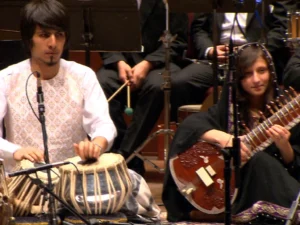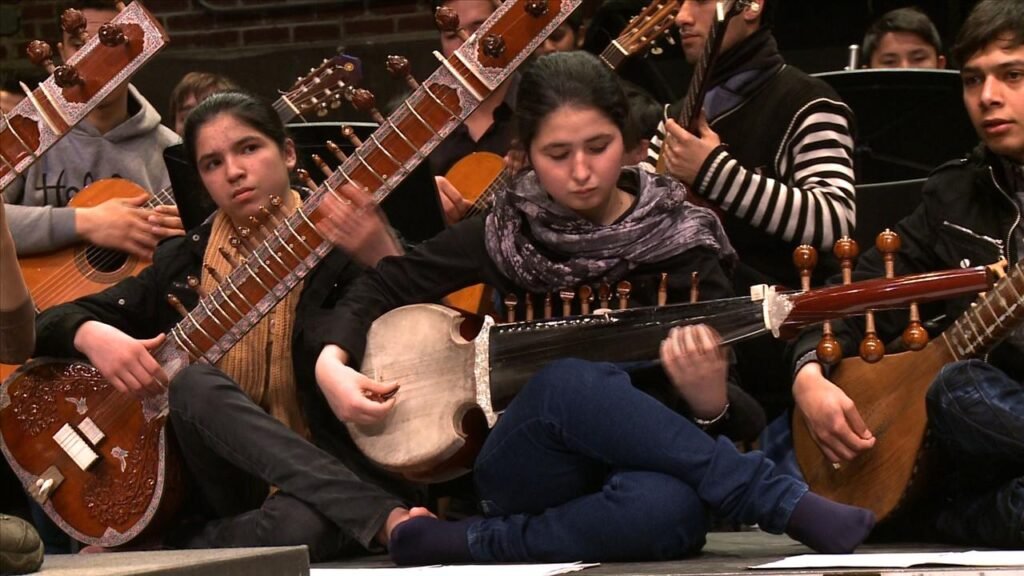Peshawar, April 20, 2025 — Afghan musicians who fled to Pakistan in the wake of the Taliban’s return to power are now facing an uncertain and fearful future as Pakistan’s deadline for Afghan refugees to leave the country approaches.
Among them is Faiz Muhammad Sakhki, a well-known musician from Afghanistan, who now lives in Peshawar. He recalls the trauma of the Taliban crackdown: “Our homes were searched for what we had there,” he says. “Our instruments were broken down, which we hid at home. Music is our passion, it is our love, and it is our profession.”
Sakhki and fellow artist Baryali Wali are among hundreds of Afghan entertainers living in Pakistan. Many of them sought refuge after the 2021 Taliban takeover, fearing the strict ban on music and arts imposed under the regime. For musicians, returning to Afghanistan could mean the end of their careers — and, potentially, persecution.

Pakistan has long hosted Afghan refugees, with over 3 million Afghans currently residing in the country, some since the Soviet invasion in 1979. However, the government is now accelerating the deportation of undocumented Afghans, saying it can no longer accommodate them due to security and economic concerns. Tens of thousands have already been forced to return, and thousands more are being deported daily.
Within this mass return, Afghan musicians find themselves especially vulnerable. In Afghanistan, music has been silenced under Taliban rule. Instruments like the rebab, part of Afghanistan’s centuries-old musical heritage, are being lost as musicians go underground or flee.
READ MORE: Pakistan expels thousands of Afghans daily; Kabul calls move ‘disappointing’
“If you take any of these [instruments] away, the whole ensemble is lost,” Sakhki warns. “It is already disappearing.”
For many in Pakistan’s Afghan music community, there is no clear path forward. Legal status is murky, support is scarce, and resettlement opportunities abroad remain limited. Without intervention, they fear not only for their personal safety, but also for the survival of Afghanistan’s rich and diverse musical traditions.
As the deportation deadline nears, artists like Sakhki and Wali continue to live in limbo, clinging to their instruments, their history, and the hope that the world will not let their voices fade away.


